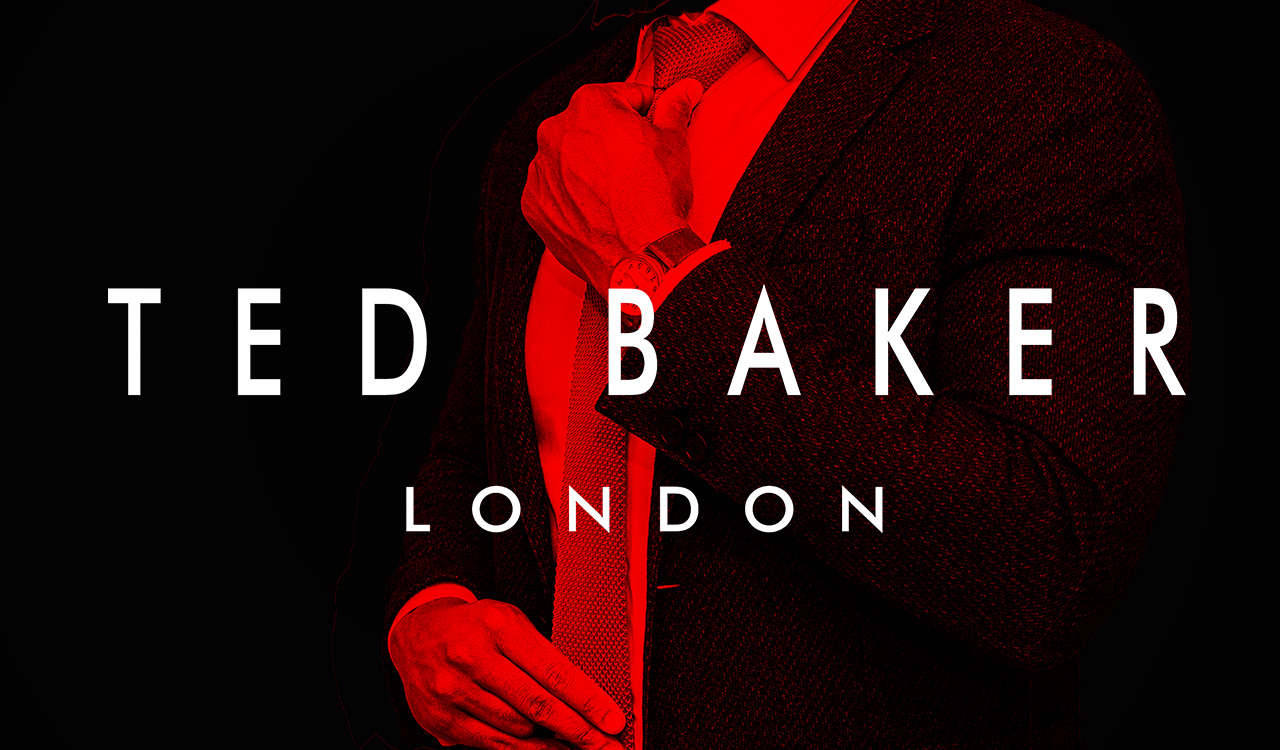Once upon a time the slightly eccentric U.K. menswear brand Ted Baker was the epitome of high street offbeat Cool Britannia, with an equally quirky and inspirational leader at its helm.
Faced with increasing competition and the pandemic-enforced shift to casual styles for working from home, Ted Baker was eventually taken over by U.S.-based Authentic Brands Group (ABG) in 2022 as it delisted from the London stock market in a circa $268 million deal.
Now Ted Baker menswear is shuttering stores and websites, seeking buyers and in the hands of administrators as its businesses on both sides of The Pond face either being wound up or absorbed into a wider fashion group.
Ted Baker Menswear Phantom
Let’s start with a spoiler alert: Ted never really existed. But he might as well have because he was the mythical creation of founder Ray Kelvin who appeared to live out his fashion alter ego through the stylishly attired Ted. Ray famously eschewed the limelight to such an extent that he refused to have his photo taken. Indeed, when one business title captured his image reflected in a mirror, Kelvin took huge offense.
But now Ted Baker has closed its North American stores and website amid the embattled chain’s collapse. In all, 31 of the fashion retailer’s U.S. locations and nine of its Canadian stores are shutting, while shoppers across both countries can no longer make purchases from Ted Baker’s website.
Similarly, the U.K. arm is waiting for a savior. While the Baker brand continues to hope that man-for-all-seasons Mike Ashley might step in, reports that a deal with his Frasers Group was just days away from being agreed have come and gone. However, at the time of writing there is no further news.
So just what went wrong at Ted Baker?
Scandal Hits Ted Baker
All was as buttoned-up as a three-piece suit in Ted’s world until #metoo style rumors circulated. Kelvin was rapidly ousted back in 2019 amid claims of inappropriate behavior toward colleagues. Faced with a hugely controversial situation, the retailer failed to deal with the fallout from the removal of its founder after the claims of a culture of “forced hugs” were played out in the mainstream media.
Without Kelvin, Ted Baker began to lose its way, failing to stand out in an increasingly competitive market, especially one where the growth of work from home was about to reduce demand for suits and smart apparel.
Rise and Fall
The company subsequently struggled against tough trading conditions and was forced to issue a string of profit warnings and admit to embarrassing accounting mishaps. In 2020 it axed hundreds of jobs and raised over $125 million to shore up its balance sheet in a bid to stabilize the business.
Above all, Ted Baker seemed to have lost its sense of self. Well before the scandal broke, I spoke to Kelvin back in 2016 and he explained his ethos, which had served the brand so well and made it an internationally-recognized retail name.
“Obviously a big difference for the Ted Baker brand is that I am also the founder, and in that way, I am the holder of the brand and the product direction. We have established ourselves as an international brand but whether it’s the stores, online or overseas, we make sure that everything we do reflects those core brand values. It’s vital that getting bigger does not mean losing that essence and we have a style for everything we do that sets the tone,” he said.
And of the brand’s international growth he insisted: “Going overseas means reasserting the quirky Britishness for which we’re known, it certainly doesn’t mean diluting it.”
Competition Hits Ted Where It Hurts
Faced with increasing competition and the pandemic-enforced shift to casual styles for working from home, Ted Baker was eventually taken over by U.S.-based Authentic Brands Group (ABG) in 2022 as it delisted from the London stock market in a circa $268 million deal.
That takeover followed a pre-tax loss of nearly $55 million in the year to January 2022, from sales of almost $408 million, during which time Ted Baker was operated in Europe by holding company No Ordinary Designer Label (NODL). In January of this year, ABG cut ties with AARC, a Dutch company appointed to run the business in 2023.
At the time of administrator Teneo Financial Advisory’s appointment in the U.K., ABG’s chief strategy and transition officer, John McNamara, conceded: “Despite our tireless efforts, the damage done during a period under AARC in which NODL built up a significant level of arrears was too much to overcome. We remain focused on securing a new partner to uphold and grow the Ted Baker brand in the U.K. and Europe where it began.”
NODL licenses the Ted Baker brand, which had 46 U.K. stores. and ABG has now pushed ahead with a U.S. shutdown. ABG said of that move: “We are close to finalizing agreements with new partners to operate Ted Baker’s concessions, wholesale distribution and ecommerce businesses. We remain committed to Ted Baker and are optimistic about the brand’s future.”
Possible U.K. Buyers
With a quick deal with Frasers Group failing to materialize, rival Next has emerged as a possible contender. Next is a popular apparel and homewares retailer and hugely successful operation in the U.K. which has snapped up a number of brands in recent years. It was also reported to be in contention for a deal, while OSL, Ted Baker’s U.S. licensing partner, had also expressed a recent interest.
ABG has said that it will work closely with Ashley if Frasers is confirmed as the brand’s new British partner, while the picture has at least cleared a little after Ted Baker’s biggest creditor, Secure Trust Bank, was assured it would receive the nearly $20 million it is owed. However, the 612 unsecured creditors owed a collective $76.5 million would appear to be less fortunate.
Moving on from Kelvin
Quite simply, Ted Baker has never recovered from the loss of Ray Kelvin, who to all intents and purposes was the brand. He may not have named the company after himself, but it did feel as though this mythical character he had created, Ted Baker, was effectively who he was.
Kelvin’s vision, supported by slightly irreverent marketing and fast merchandise turnaround, aligned with a consumer who got what the Ted Baker brand was all about and wanted to be associated with the image and lifestyle it extolled. Indeed, beyond the loss of Kelvin, Ted Baker womenswear director Catherine Scorey Jobling also left in 2019 in order to become All Saints chief operating officer, leaving yet another major gap in its management and vision.
Right now, Ted Baker is tough to distinguish from other mainstream apparel rivals such as Zara, Next, and a resurgent Marks & Spencer. Even if it eventually finds a home within the likes of Next or Frasers, there are questions about whether that would enable it to recapture its brand essence. The alternative would be to simply become a sub-brand.
To appeal to the next generation of well-dressed men, Ted Baker needs to take a long hard look in the mirror.




